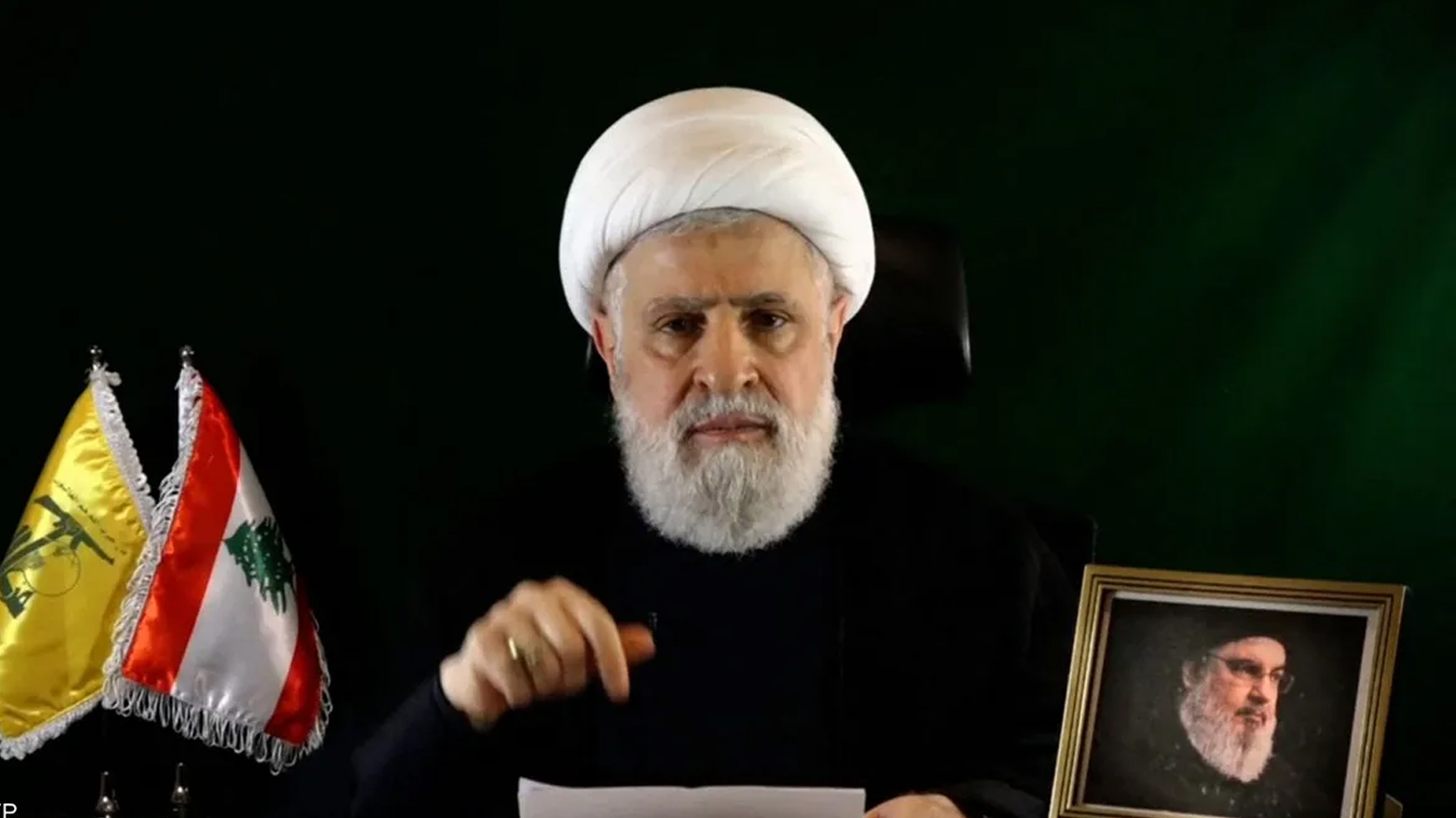Hezbollah Will Not Disarm, Qassem Says as Lebanon Faces External Pressure over Security Accord
Hezbollah's deputy leader Naim Qassem rejected disarmament demands, stating any security agreement requires Israeli withdrawal first. The stance contrasts with President Aoun's commitment to a US-France brokered accord that Israel has not fully implemented.

ERBIL (Kurdistan24) – Sheikh Naim Qassem, deputy secretary-general of Lebanon’s Hezbollah, on Friday forcefully rejected demands that his movement surrender its weapons and described U.S. requirements in Lebanon as tantamount to “orders” carried out under Israeli pressure. In a public statement, Qassem warned that attempts to subordinate Hezbollah’s arms to external dictates would be unacceptable and insisted that any agreement regarding security must respect Lebanese sovereignty and begin with an Israeli withdrawal from Lebanese territory.
Addressing U.S. envoy Tom Barrack by name, Qassem accused the American representative of openly proposing to disarm Lebanon’s armed forces in order to make them confront their own people. “Tom Barrack, the U.S. representative, clearly said he wants Lebanon’s army to be weakened so that it faces its people,” Qassem said. He asked how the Lebanese government could concede to such a demand and warned that if the south of the country again spilled blood, the responsibility for that bloodshed would lie with the United States and Israel.
Qassem set out clear preconditions for any so-called “security agreement,” saying such an understanding can only concern southern Lebanon if—and only if—Israel first withdraws and frees the land and its people. “There is no room for any substitute arrangement for such an agreement and any new deal must not become a cover for occupation,” he declared. He outlined a sequencing for talks: first, the Israeli withdrawal and implementation of the agreement; only then should internal dialogue begin on the structure of Lebanon’s forces. Crucially, he stated, foreign powers must have no role in those internal talks.
In parallel, President Joseph Aoun reiterated Lebanon’s commitment to the security agreement with Israel reached last year under international auspices. Aoun recalled that the accord, concluded on 27 November 2024 and facilitated by the United States and France, envisaged a full Israeli withdrawal from southern Lebanon within 60 days of implementation. He said Israel has not honored that timetable and that its forces continue operations in southern Lebanon and maintain positions at five locations inside Lebanese territory. Aoun stressed the enduring nature of those incursions and expressed frustration at the lack of compliance by the Israeli side.
Qassem’s intervention frames the debate as one over sovereignty, sequencing and external influence: Hezbollah refuses to have its armaments treated as a bargaining chip or subordinated to arrangements it views as imposed from outside. He urged that any settlement must begin with Israeli compliance on withdrawal and territorial respect before domestic arrangements — including the role and command of Lebanese forces — are addressed internally and without foreign intervention.
As Lebanon navigates fragile security arrangements and international pressure, Qassem’s remarks underscore the deep divisions that remain over the future role of armed groups in the country and the limits of external mediation. The gulf between Hezbollah’s insistence on preconditions tied to Israeli withdrawal and international calls for centralised state control of weapons appears to leave little immediate room for compromise, even as some state officials continue to affirm their commitment to the pact reached last year.